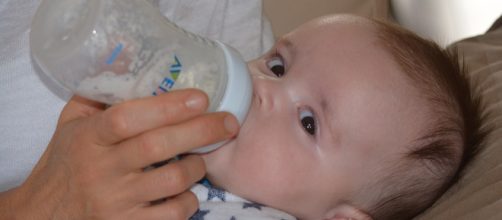Formula milk firms continue to exploit poor and vulnerable mothers throughout the globe despite the initial revelation of the issue in the late 1970s and the subsequent call to resolve them by the World Health Organisation (WHO) International Code, according to a newly published report by Save the Children aptly titled 'Don't Push It.'
How do they exploit poor and vulnerable mothers?
The report revealed the aggressive marketing tactics employed by formula milk companies to encourage mothers to buy their products by constantly claiming that their products are superior to breastfeeding despite WHO's international code explicitly preventing formula milk products to be directly targeted to mothers and healthcare professionals and also restricting the ways in which they can be advertised.
Where are babies most affected?
The issue is rampant in developing countries, in particular, where there is a lack of access to healthcare. This leads to mothers being ill-informed of the benefits of breastfeeding as well as there being a higher risk of babies contracting pneumonia and diarrhoea whereas breastfeeding kicks the immune system to life and provides protection against these diseases.
Why do mothers use formula milk rather than breastfeeding?
The procedures are also being ignored is some countries, such as in The Philippines, where only 34% of mothers exclusively breastfeed in the first six months after birth, new mothers are regularly given so-called "medical advice" and recommend specific formula brands in their lists of "essential purchases."
Additionally 50% of mothers in Mexico said that they had been recommended formula milk by a doctor whilst 75% of hospital staff in Chile reported visits from formula representatives.
Many new mothers are initially given money-off coupons or free formula milk where available, however, some are left with no clean water to make up their formula or wash their bottles, leading to devastating consequences for infant health and mortality.
How long has this been known for?
WHO's policies were first set out in 1981 following widespread protests and a boycott against Swiss multinational, Nestlé's marketing of formula milk being better than breastmilk after a number of babies fell ill or died from poorly sterilised bottles, according to a 1974 report called 'The Baby'.
Nestlé, who account for almost a quarter share of the global infant milk product market, have insisted that they follow the code which has been set out but would investigate further and take action where necessary.
What other issues do Nestlé products have?
A separate report published earlier this month titled 'Busting the myth of science-based formula,' carried out by the Changing Markets Foundation, investigated 70 Nestlé infant milks for babies under a year old, sold in 40 different countries and concluded that many of the ingredients contradicted health claims.
Sometimes Nestlé even contradicted their own claims: product labels on items in Brazil and Hong Kong warned parents against giving sucrose-based goods but two products containing sucrose were being sold in South Africa at the same time. Similarly, some products in Hong Kong were presented as healthier for not including vanilla flavouring for "baby's good growth" yet these ingredients were found in other Hong Kong products as well as in China and South Africa.
The company was also criticised for advertising their products as being “inspired by human milk”, and having “an identical structure” to breastmilk.
What needs to be done to finally fix this?
The leading milk formula firms in question are being driven by marketing strategies and greed instead of scientific evidence by spending an estimated £36 on marketing for every baby born worldwide with no regard for a child's health.
In Jordan's Za'atari refugee camp, one of the biggest ones in the world, women are not only being educated about breastfeeding and bottle sterilisation, but there is also a system which has been implemented to report any marketing violations by formula milk to parents in the camps whilst Save the Children make sure only eligible mothers receive formula milk.
A similar system needs to be adopted in countries around the world to put a stop to these preventable deaths and we also shouldn't be accepting companies putting their profits before the interest of newborn babies as has been done for the past forty years - it's time to take action to stop it.


